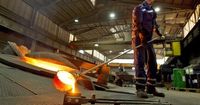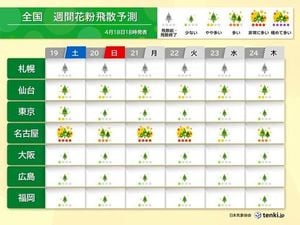In the picturesque Ore Mountains of Germany, a small folk art company has found itself at the center of a brewing storm over U.S. tariff policies. Steinbach Volkskunst, known for its exquisite wooden crafts, is particularly famous for its Donald Trump nutcracker, which retails for a hefty $379 in the United States. However, the planned tariffs announced by U.S. President Donald Trump are causing significant concern not only for Steinbach but for the entire industry of wooden toy and folk art manufacturers in the region.
The looming threat of a 20 percent surcharge on imports could render these beloved nutcrackers too expensive for American buyers, potentially crippling sales. The U.S. market is critical for over 120 wood toy and folk art manufacturers in the Ore Mountains, making it their most important export destination.
In a related development, a 90-day delay for the implementation of these tariffs has been seen as a glimmer of hope for the industry. This temporary reprieve may provide manufacturers like Steinbach Volkskunst with a chance to strategize and adapt to the changing economic landscape.
Meanwhile, the ripple effects of Trump's tariff policies are being felt across various sectors in Austria as well. Georg Hemetsberger, the CEO of Eisenwerk Sulzau-Werfen, a company that exports 20 percent of its production to the U.S., expressed the uncertainty that has enveloped many businesses. “We all don't know how things will proceed,” he stated, reflecting the anxiety felt by many in the export sector.
With 120 companies in Salzburg regularly exporting to the U.S., the impact of the current 10 percent tariffs is significant, leading to millions in additional costs for local businesses. Hemetsberger noted that the existing tariffs, alongside the proposed 25 percent tariffs on steel, aluminum, automobiles, and auto parts, have created a challenging environment for exporters.
Despite the tariff pause for EU countries, the situation remains precarious. “We can pass the tariffs on to customers through negotiations, but that is also difficult,” Hemetsberger admitted. The uncertainty has left many companies scrambling to understand the implications of these tariffs on their operations.
Notably, the U.S. is highly reliant on imports for metal rollers produced by companies like Eisenwerk Sulzau-Werfen. In light of this, there are ongoing negotiations in the U.S. to secure exemptions from the tariffs for specific products, including metal rollers.
Another Salzburg company, Palfinger, which specializes in cranes, is also feeling the pinch. CEO Andreas Klauser mentioned that they are currently assessing the specific impacts of the tariff announcements on their product lines. Palfinger’s decision to establish a North American headquarters in Schaumburg, Illinois, alongside four production sites, has proven beneficial, offering them a strategic advantage in navigating these turbulent waters.
On a more positive note, Senoplast, a plastic specialist from Piesendorf, is finding a silver lining thanks to its plant in Mexico. Goods produced in Mexico are currently exempt from tariffs, allowing Senoplast to maintain a competitive edge in the U.S. market. “Particularly our plant in Mexico is strongly oriented towards the USA,” stated Günter Klepsch, highlighting the importance of this facility for the company's operations.
Overall, the export volume from Salzburg to the U.S. amounts to over one billion euros, accounting for slightly more than seven percent of all Salzburg exports. This substantial figure underscores the importance of the U.S. market for local businesses.
As the situation continues to develop, many companies are left in a state of uncertainty, caught between the complexities of international trade and the unpredictable nature of U.S. tariff policies. The coming weeks will be crucial for both the wooden crafts of the Ore Mountains and the various exporters in Salzburg as they navigate these challenges and seek to secure their futures in the U.S. market.





